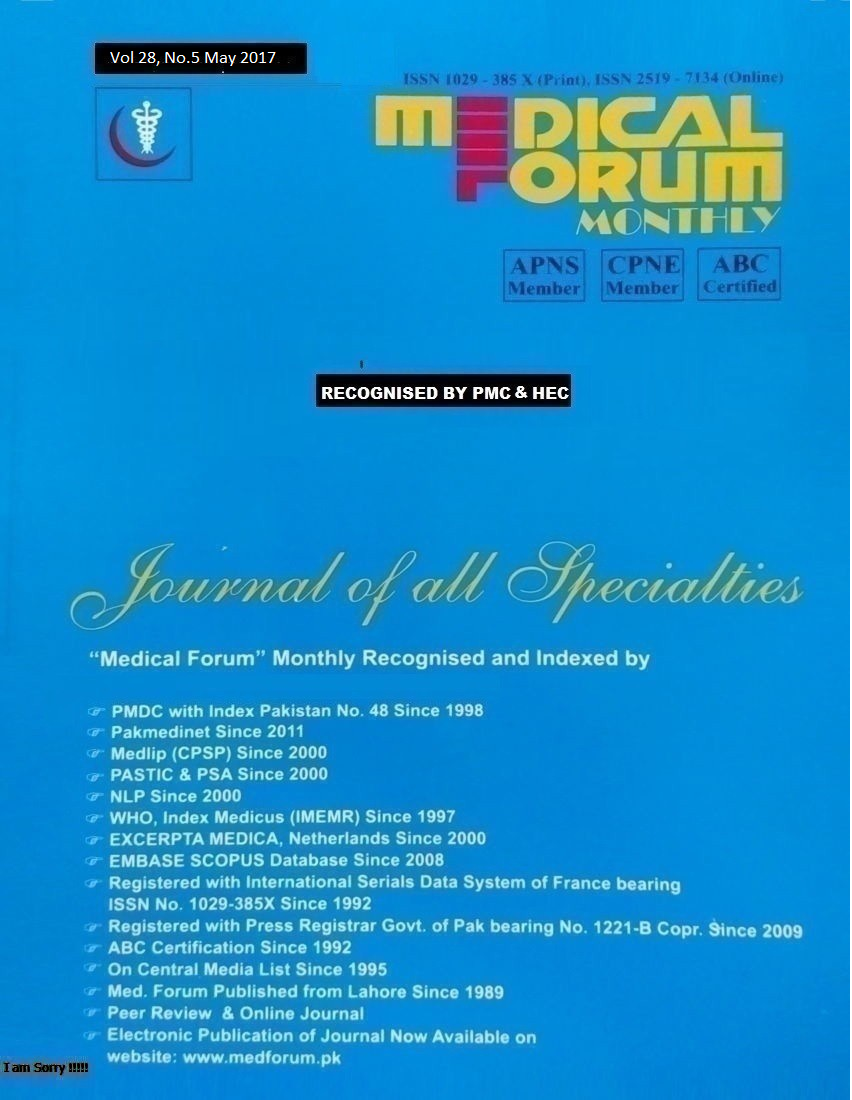
3. Efficacy of Bevacizumab for Uveitis Induced Cystoid Macular Oedema in Southern Punjab
Muhammad Afzal Bodla and Ali Afzal Bodla
ABSTRACT
Objective: To determine the presenting with cystoid macular oedema from non-infectious uveitis.
Study Design: Observational / descriptive study.
Place and Duration of Study: This study was conducted at the OPD of Multan Medical and Dental, College Multan. Time of recruitment was from January 2015 till Feb 2016.
Materials and Methods: Seven eyes of seven patients were included in the study. They were followed over a period of twelve months with a loading dose of bevacizumab on the day of recruitment. Patients had an OCT of macula at four weekly intervals. Injections were repeated only if they had no reduction in cystoid changes, new cyst formation or increase in macular thickness. Primary outcome was measured in the form of improvement in visual acuity. Secondary outcome was reduction in central macular thickness on OCT.
Results: A total of twenty four injections were administered in seven eyes of seven patients over a period of twelve months. Main outcome was increase in visual acuity which was 9.9 ETDRS letters at the end of twelve months period. Improvement in visual acuity was found to be statistically significant (P=0.003). the mean central macular thickness decreased by 39.1% over a period of twelve months(P=0.002). Two patients had recurrence of uveitis while one developed glaucoma afterwards.
Conclusion: There was significant improvement in visual acuity as well as reduction in central macular thickness. Key Words: Bevacizumab, Uveitis, Cystoid Macular Oedema, Central Macular Thickness
Citation of article: Bodla MA, Bodla AA. Efficacy of Bevacizumab for Uveitis Induced Cystoid Macular Oedema in Southern Punjab. Med Forum 2017;28(5):11-14.
